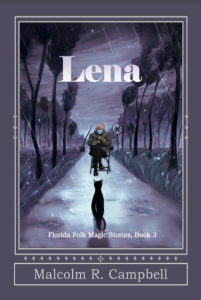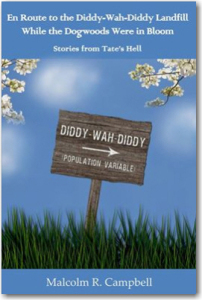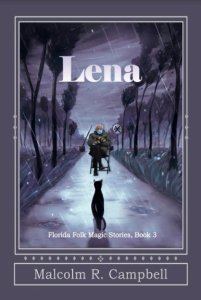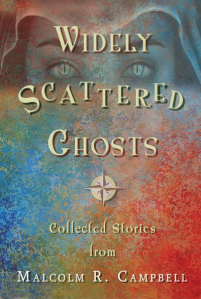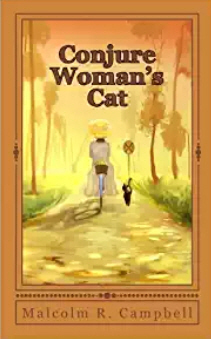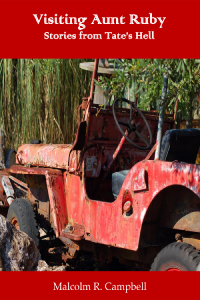Malcolm R. Campbell's Blog, page 77
May 10, 2021
wonderment, perhaps
When children come into our lives, however briefly, we often find the wonderment we once had and lost. The baby arrives from another realm, one we’ve also forgotten, and immediately goes about discovering how our world works. Some discoveries bring pain, but most provide more than enough incentive for a happy “ahhh” or “oooh” and a smile that reaches from here to eternity.
We can learn a lot by watching a child.
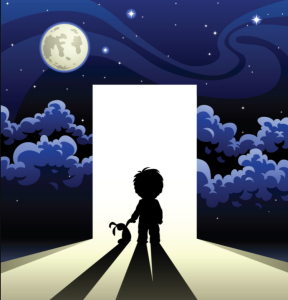 Perhaps wonderment is the most powerful state of mind we can achieve, the ability to see the universe in a grain of sand and excitement in each new discovery. Water fountains, ice cream, a kiss, our beautiful differences, unexpected humor, the sea and the sky, love that’s true.
Perhaps wonderment is the most powerful state of mind we can achieve, the ability to see the universe in a grain of sand and excitement in each new discovery. Water fountains, ice cream, a kiss, our beautiful differences, unexpected humor, the sea and the sky, love that’s true.
Losing wonderment is like choosing to be blind or deaf, and unconcerned about what we’re choosing to miss out on. But age often makes us tired and so do numerous betrayals that most babies have yet to experience. So, we close ourselves down to the beauty of new experiences for fear of getting hurt.
Sometimes after trying on many suits of clothes and searching down many roads, we find ourselves and the wonderment we once took for granted. Limitations and bad dreams immediately fall away. What a miracle.
We can, if we wish, be on the lookout for wonderment rather than sitting in front of the TV every night waiting for entertainment from outside ourselves. Life is never over after “bad luck” even though we might think so. There are still water fountains, ice cream, sea and sky, and love that’s true. No doubt there are risks to being open to the joy of something new, something potentially transcendent.
Not to worry. Wonderment eases all pain and takes away all disappointments while giving us the moon and the stars.
–Malcolm
Publisher: Thomas-Jacob Publishing
May 9, 2021
things best not said
A polite person knows some things are best not said. Unsolicited comments about a stranger’s looks or how bad the food tastes when one is invited to dinner at a friend’s house. The old joke in which a wife asks her husband if he likes her new dress or her new hairdo probably fits in here somewhere inasmuch as speaking the truth in such matters is dangerous.
One of the things best not said–it took me a while to learn this and I still haven’t learned it–is telling your parents (who have both taught writing in high school and college) that you don’t understand why you have to take English classes in high school and college. When my parents asked why, for a prospective writer, my grades in English courses were lower than they were in other courses, I said that I seldom paid attention and that when I did, I didn’t agree with my teachers.
E.g., I thought diagramming sentencers was crap. So I never did it well. And my grades reflected this.
 My example to my parents was that since my Spanish teacher’s children were bilingual, they were not expected to take basic Spanish courses because they were already fluent. My folks thought that made sense. Then I said, I’m already fluent in English. Why am I forced to take it?
My example to my parents was that since my Spanish teacher’s children were bilingual, they were not expected to take basic Spanish courses because they were already fluent. My folks thought that made sense. Then I said, I’m already fluent in English. Why am I forced to take it?
The first answer was that taking it made me better and the second answer was that, like many liberal arts courses, English courses taught people how to think. I might have said that I was already fluent in thinking, though what they meant was organizing one’s thoughts, creating a hypothesis, and defending it. I agreed that was important, suggesting that rhetoric was the place or such things, and possibly courses with titles like advanced exposition. The trouble was, basic English courses were always part of one’s general education requirements and were prerequisites to the advanced English department courses.
Why can’t I just talk to the teacher for 30 minutes to show I’m already fluent, get an exemption, and move forward? This argument never went anywhere because putting it into practice was like fighting city hall.
I was always a rebel. Still am. I still don’t like the English requirement for native speakers of English or the habit of literature teachers basing their approach to novels by forcing us to accept what they think each novel means rather than on what we get out of reading it. There’s a reason I think why most college graduates read very little as adults: the lit courses ruined it for them.
I taught college-level journalism for several years. One thing I knew better than to tell my department hard was that I really resented having those courses placed within the English department. They belonged in a journalism department. And, as I taught students how to write news stories and features stories, I grew tired of “fixing” the problems that had infected them from English 101 and 102. The fact that I grew tired of the 101 and 102 BS was another thing best not said.
In the old days, a liberal arts degree was considered valuable to prospective employees in many careers. It got you in the door. Now, more people are taking a technical school approach and asking why they can’t just take the courses they need to excel in their career of choice. My thought is that approach will keep you from learning anything about civics, history, and the other disciplines that make us (so to speak) well-rounded citizens. If “they” asked me, I would say stop teaching English to those who are already fluent in it: what kind of joke is that?
“They” never ask me and I’m not surprised.
–Malcolm
Publisher: Thomas-Jacob Publishing
May 8, 2021
when the gods intervene on your behalf, is that “success”
“Chance favors the prepared mind.” – Louis Pasteur
Chances are, most people will believe that a writer is more likely to benefit from sudden good luck if s/he is ready for it. Perhaps not being ready for it means the chance won’t happen. Aside from that, if an editor appears and says, “If you have a great short story, I’ll publish it and pay you fairly for your work,” then it helps to have a great short story ready.
So, I suppose practicing one’s writing skills and being ready for “a lucky break” can be called success.
 Nonetheless, as I think of this now, I remember a shouting match–via snail mail–I had with a widely a known writers magazine many years ago. The magazine purported to offer everything a prospective writer might need, from learning the craft to the techniques necessary for finding a magazine editor or a book publisher. They did a reasonable job of covering the basics of creating a salable work and understanding how and when to pitch it to the right place at the right time.
Nonetheless, as I think of this now, I remember a shouting match–via snail mail–I had with a widely a known writers magazine many years ago. The magazine purported to offer everything a prospective writer might need, from learning the craft to the techniques necessary for finding a magazine editor or a book publisher. They did a reasonable job of covering the basics of creating a salable work and understanding how and when to pitch it to the right place at the right time.
I had no argument with that. What bothered me were their “success stories,” published in every issue to show that their teaching could lead to a successful writing career. What started this shouting match was the fact every “success story” never showed the magazine’s “pitch” techniques working. In every so-called success, the writer labored away at their craft and didn’t get it published until an influential author, agent, editor, or publisher moved into the house next door, ultimately took a look at the prospective author’s work, and showed it to the powers that be, sidestepping the normal submissions process.
My argument was that since the magazine was teaching how to successfully write and how to successfully submit work on speculation or on assignment, that the appearance of a “god” next door didn’t equate with success. The magazine’s submission system included building a platform of acceptances from little magazines or regional magazines or the local newspaper, writing a proper query letter, crafting a synopsis for an agent/editor/publisher, and doing all this according to accepted standards. There was no “god” in the system.
They argued, like Pasteur, the “god” next door wouldn’t have been of much help if the writer weren’t ready. I stipulated that. But I also said the magazine was teaching the standard route to finding a publisher for the created work, and that did not include having Ernest Hemingway or Bennet Cerf moving into the vacant house next door. I said I wanted to read success stories that showed writers following the magazine’s advice from A to Z. They never showed that, so I canceled my subscription.
There’s a lot of luck going around in the publishing business. Yet, I think emerging writers need more to do than sit and wait for it to appear. They need to know how to write and how to find a publisher. Of course, if John Grisham moves in next door and offers to help, I see no reason to turn him down.
–Malcolm
Publisher: Thomas-Jacob Publishing
May 7, 2021
the gods conspire
Many writers speak of the joy of writing, how the day is not complete unless they can sit down and work on their latest story, how they would write if nobody knew they wrote, how writing completes them like icing on a cake. Most writers also know that even on the best of days, the gods conspire to defeat their best efforts, or cause mischief, or add a few roadblocks where logic says there should be none.
The writer’s first duty is, perhaps, not getting so frustrated when the gods conspire that s/he comes to a point where s/he can no longer write. At the same time, it’s considered bad form for a writer to complain in public, so other than having a sympathetic and patient spouse, writers seldom have anyone willing to listen to their frustrations.
When I think of my own frustrations about major publishers and reviewers, I remember my college writing instructor Michael Shaara’s frustrations. He won the Pulitzer Prize for his 1974 novel The Killer Angels. Even so, most people never heard of it until after the movie based on the novel was released in 1993 five years after Shaara died of a heart attack at 59. Then reviewers started saying The Killer Angels was the best civil war book ever written. I can’t help but think how the gods conspire when he never heard that or saw that readers finally discovered his work.
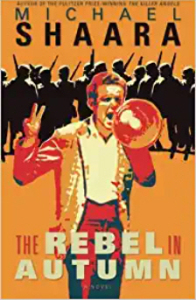 But that’s not the half of it. His best novel The Rebel in Autumn, written prior to The Killer Angels, never found a publisher in his lifetime. Written about the protests of the 1960s, it was (perhaps) too current for publishers to accept. Like his baseball novel For The Love of the Game, which became a Kevin Costner film in 1999, Rebel was published through the influence of his children Jeff and Lila (both are authors) posthumously in 2013.
But that’s not the half of it. His best novel The Rebel in Autumn, written prior to The Killer Angels, never found a publisher in his lifetime. Written about the protests of the 1960s, it was (perhaps) too current for publishers to accept. Like his baseball novel For The Love of the Game, which became a Kevin Costner film in 1999, Rebel was published through the influence of his children Jeff and Lila (both are authors) posthumously in 2013.
I doubt it does an author any good to have some close friend say, “You feel unappreciated now, but after you’re dead, people will love your work.” When the gods conspire, they love this scenario. Loners at Florida State University in the 1960s–myself included–were drawn to Shaara as a kindred spirit. We all felt out of place and we talked about this between classes at a spot that served decent coffee and didn’t mess with while you used to booth without paying rent. We all knew what the gods did and we all felt that one day our numbers would be up.
So, The Rebel in Autumn doesn’t surprise me as a novel (other than how good it is and how wrong the rejecting publishers were) because we talked about protest, the war, the establishment government, most people over 30, the political vicissitudes of a university, and the survival of the nation. The novel was and is about our shared experience, our common worries, and our frustrations with the absurdities of our daily lives.
I do not feel comfortable reviewing my mentor’s novel, but I can say that I share his frustrations about the lack of good sense of major agents and publishers.
–Malcolm
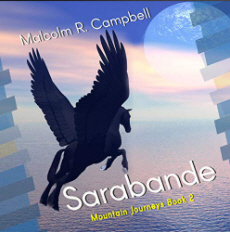 Glacier Park Novel – Audiobook Edition
Glacier Park Novel – Audiobook Edition
Malcolm R. Campbell
Publisher: Thomas-Jacob Publishing
May 3, 2021
Our calico cat hates storms
Thunder, driving rain on the roof, power outages, and anything else having to do with severe weather, Katy isn’t going to like it. At 3 p.m. today, the heavy rain made it so dark inside the house, I finally turned on a light in the kitchen. Meanwhile, there’s been a tornado watch in place most of the day here in northwest Georgia. This Weather.com graphic is a tip-off that we’ll have more rain tomorrow and for the rest of the year maybe:

I’m glad we got our yard mowing caught up yesterday. I wish I hadn’t gotten drenched while grocery shopping this morning. The rain was light until I walked out of the store with a cartload of food and, as they say, the bottom fell out. I would have been drier in a swimming pool.
The people on Facebook tell me I have rain for Monday’s errands because I’m not showing Mother Nature enough respect. Yes, I call her Baby Cakes. I saw that as a term of endearment. 99 and 44/100 percent of my friends don’t see it that way. Who knew?
Well, now the sun came out and the rain has stopped. The baby goats in the pasture across the road are enjoying their late afternoon. Katy’s stopped acting like a fraidy cat. But it’s all a trick. As soon as it gets dark we’ll have a rainy night in Georgia as Tony Joe White wrote in his 1967 song popularized by Brook Benton.
When that happens, I think I’ll go take a nap while Katy hides under the bed.
–Malcolm
Publisher: Thomas-Jacob Publishing
May 2, 2021
The Hunt for Red October – Finally Read the book
The movie was great: plenty of action, great cast. I’ve seen it multiple times. Since I was low on factory-fresh recent books and/or waiting for those prices to go down, I picked up a copy of the paperback and read it out of curiosity. It’s well written and was a fun read.
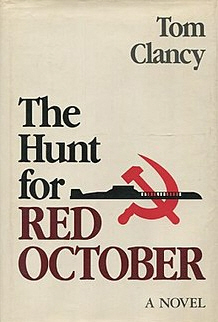 I had to work to keep from seeing the movie in my mind’s eye while reading the book. I’d rather let my imagination create “what things look like” as I read, but that’s difficult to do when you’ve already seen the movie. So, I kept seeing Sean Connery and Alec Baldwin.
I had to work to keep from seeing the movie in my mind’s eye while reading the book. I’d rather let my imagination create “what things look like” as I read, but that’s difficult to do when you’ve already seen the movie. So, I kept seeing Sean Connery and Alec Baldwin.
Needless to say, the book had a lot more going on in it than the movie. Yet, I can see why they cut what they cut (to avoid a four-hour film). In general, I liked the book’s plot more than the movie’s plot because it gave the reader a much better picture of what might really happen as the (seemingly) entire Russian navy suddenly approaches the U.S. in search of their rogue sub, leaving the powers that be in our government having to respond in case all those Russian ships out there are an invasion.
One of the best scenes of the submarine Red October racing along the seafloor in a dangerous area doesn’t even happen in the book. I was disappointed in that. Yet, intercepting Red October is much more complex in the book. I appreciated that because it seemed closer to what would happen in “real life.”
I missed the scene from the movie in which Red October travels up a river or estuary with Baldwin (CIA) and Connery (submarine captain) talking about the fact that the area has some great fishing. Both men liked fishing and Connery was hoping he’d be able to do it in his new country. It was a nice scene.
But, I’ve come to expect this, the simplification of movie versions to fit into a manageable running time. So I end up liking both the book and the film versions for what they were within the constraints of the presentations. For those who have read the book and seen the movie, there’s a decent comparison here.
If any of you have read the book and also watched the movie, I’d be interested in your impressions of the two versions of the story.
–Malcolm
I’d like to see a movie version of Conjure Woman’s Cat.
Publisher: Thomas-Jacob Publishing
May 1, 2021
Facebook author’s page – an invitation
You are hereby and herewith, &c. invited to stop by my Facebook author’s page. I change the header from time to time, but right now it looks like this:

As you can see by the graphic, the page mentions my work. Yet, it is by no means a giant advertisement.
In fact, most posts focus on publishing news, author interviews, upcoming titles, book reviews, opinions and criticism, writing tips, genres, and book news that provide you with a snapshot of the latest activities from the world of books. I usually post about five links a day so that visitors can quickly scan the page to see if there’s anything that leaps out and grabs their attention.
Sure, I also have a Facebook profile, but it’s personal stuff, weird memes, pictures of kitties, general news, and other typical stuff that friends want to see. Most of the book world information is on my author’s page.
I hope to see you there.
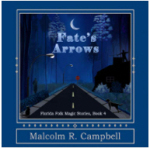 I was happy to see that the first reviewer of the new “Fate’s Arrows” audiobook was happy with the story and the narrator’s presentation.
I was happy to see that the first reviewer of the new “Fate’s Arrows” audiobook was happy with the story and the narrator’s presentation.
April 30, 2021
Shoot them now while they’re still happy
That was Dorothy Parker’s advice for those who had friends who wanted to be writers.
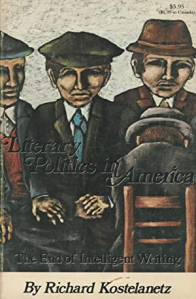 When I was a college English department instructor, my “Bible” was The End of Intelligent Writing: Literary Politics in America (1974) by Richard Kostelanetz. My colleagues thought it was overly grim, though they didn’t worry about literary politics because they weren’t teaching their students how to become writers. Their students were simply supposed to enjoy literature and then if they enjoyed it enough, teach it to others.
When I was a college English department instructor, my “Bible” was The End of Intelligent Writing: Literary Politics in America (1974) by Richard Kostelanetz. My colleagues thought it was overly grim, though they didn’t worry about literary politics because they weren’t teaching their students how to become writers. Their students were simply supposed to enjoy literature and then if they enjoyed it enough, teach it to others.
It was a closed-loop quite soundly divorced from considerations of what it took to write and produce that literature. According to my “Bible” prospective writers were up against a closed club. The author called “The New York Review of Books” the New York Review of Each Other’s Books. The club would let you in if you, say–killed somebody and wrote a book about it or if you were a famous, and hopefully infamous, celebrity submitting a tell-all book about almost anything. But fiction: a hard sell then and now.
I should have been a firefighter.
I’ve been haunted for years by the words of author Lila Shaara posted in Beatrice in 2006: “I grew up seeing writing as something that gripped you in poisoned talons, gave you little or nothing back, drove you to addiction and depression, and killed you young.”
Some writers will disagree. They are the 1% who dodged the bullet when we tried to shoot them and somehow clawed their way through the politics of publishers and agents and against overwhelming odds, and are still happy. (Too happy, I would say, from what I read in their newsletters.) The other 99% are insane or selling used cars in Fargo.
Once upon a time, there was a gag that most newspapermen and women thought they had a book inside them, the response being, that was a good place for it to stay. I agree. These days, they can self-publish and potentially earn enough per month to buy a happy meal. I’m not sure that’s an improvement over the world of 1974 when who you were dictated whether or not you succeeded. Or met with an “accident.”
I think the Mafia operates the same way,
–Malcolm
Publisher: Thomas-Jacob Publishing
April 28, 2021
Goodbye Michael Collins
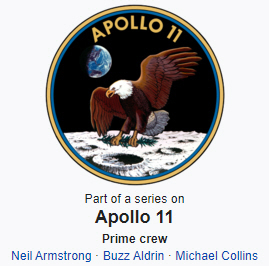 As NASA prepares for a return to the moon and looks ahead to a manned flight to Mars, we learned today that 90-year-old Apollo 11 astronaut Michael Collins died has died after a long battle with cancer.
As NASA prepares for a return to the moon and looks ahead to a manned flight to Mars, we learned today that 90-year-old Apollo 11 astronaut Michael Collins died has died after a long battle with cancer.
This leaves Buzz Aldrin, 91, as the only remaining astronaut remaining from the July 1969 flight to the moon. Collins, who piloted the command module in orbit around the moon while Armstrong and Aldrin went to the surface, designed the mission patch that signified the United States went to the moon in peace.
According to Wikipedia, “After retiring from NASA in 1970, Collins took a job in the Department of State as Assistant Secretary of State for Public Affairs. A year later, he became the director of the National Air and Space Museum and held this position until 1978, when he stepped down to become undersecretary of the Smithsonian Institution. In 1980, he took a job as vice president of LTV Aerospace. He resigned in 1985 to start his own consulting firm. Along with his Apollo 11 crewmates, Collins was awarded the Presidential Medal of Freedom in 1969 and the Congressional Gold Medal in 2011.”
To those of us who watched Apollo 11 TV coverage on TV from beginning to end, those moments of history don’t seem so far away. So it seems also that Michael Collins is gone too soon, flying now amongst the far stars where no one except his fellow astronauts has gone before.
–Malcolm
April 27, 2021
The Hunt for Red October
“The Hunt for Red October is a 1990 American submarine spy thriller film directed by John McTiernan, produced by Mace Neufeld, and starring Sean Connery, Alec Baldwin, Scott Glenn, James Earl Jones, and Sam Neill. The film is an adaptation of Tom Clancy’s 1984 bestselling novel of the same name. It is the first installment of the film series with the protagonist Jack Ryan.
“The story is set during the late Cold War era and involves a rogue Soviet naval captain who wishes to defect to the United States with his officers and the Soviet Navy’s newest and most advanced nuclear missile submarine, a fictional improvement on the Soviet ICBM capable Typhoon-class submarine. A CIA analyst correctly deduces his motive and must prove his theory to the U.S. Navy before a violent confrontation between the Soviet and the American navies spirals out of control.” – Wikipedia
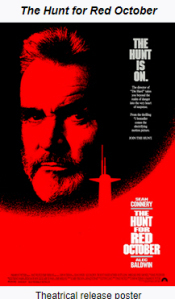 I’ve seen this film multiple times and always enjoyed it for the story, special effects, and acting. Fortunately, by the time Connery made this film, the public was getting used to him playing roles other than James Bond even though his last Bond film was made in 1983 “Never Say Never Again.” He was convincing as the aging captain of the Russian submarine Red October. The film did well, including a good review from Roger Ebert.
I’ve seen this film multiple times and always enjoyed it for the story, special effects, and acting. Fortunately, by the time Connery made this film, the public was getting used to him playing roles other than James Bond even though his last Bond film was made in 1983 “Never Say Never Again.” He was convincing as the aging captain of the Russian submarine Red October. The film did well, including a good review from Roger Ebert.
I doubt I was reading anything in the military/thriller/espionage genres in those days, so I hadn’t read the novel, a book that was well received and, needless to say, transformed the life of 30-year insurance broker Tom Clancy. Fans of Clancy know that his books became (and remain) an ongoing publishing business even though he died in 2013. His name is on the covers of the books though they’re all written by somebody else for the franchise. I’ve read many of these–and similar novels–in recent years and have found them cathartic, a mental health intervention so to speak, for those of us who are often overpowered by the evils of the world, including the books we write.
A copy of the novel arrived today. I’m looking forward to it, partly for mental health reasons, but mainly out of curiosity. I want to see the original version of the story, one that was loosely drawn on true events, and see how it was translated to the screen.
The book is, by the way, cheaper than paying a Jungian analyst $300 per session to help me cope with my own writing.
Me: Doc, it hurts when I write.
Doc: Stop writing.
Me: I’m under a spell that won’t let me stop.
Doc: Probably your shadow.
Me: You got that right.
–Malcolm
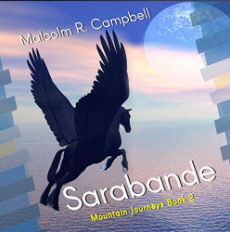 Glacier Park Novel – Audiobook Edition
Glacier Park Novel – Audiobook EditionMalcolm R. Campbell
Publisher: Thomas-Jacob Publishing

